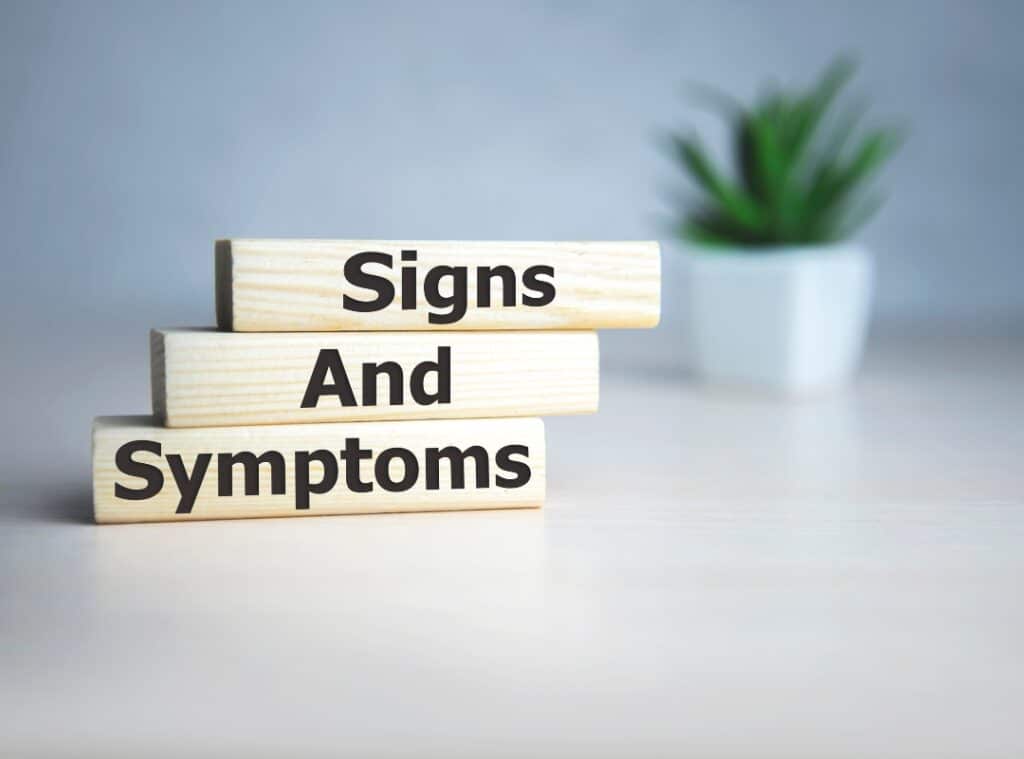As we age, recognizing important signs and symptoms becomes vital for maintaining quality of life and preventing avoidable health issues. Seniors and their loved ones should remain vigilant to both physical and emotional changes, even those that may seem like a regular part of aging. While some issues are harmless, others could signal the need for medical attention or lifestyle adjustments.
Understanding the normal signs of aging at 70 or the normal signs of aging at 80 is different from identifying troubling health patterns. It’s essential to distinguish between expected changes and more concerning physical signs of old age that could lead to falls, cognitive decline, or worse. Let’s explore how to identify these signals and take proactive steps for wellness.
For more information and support, visit Westmont of Morgan Hill.
1. Unexplained Weight Loss and Nutritional Support
Signs and symptoms such as sudden weight loss can be an early indicator of malnutrition or a more serious underlying condition. Unlike the normal signs of aging at 70, significant unintentional weight loss is not considered typical.
You can mitigate risks by:
- Scheduling regular nutritional assessments.
- Incorporating nutrient-dense meals into your diet.
- Exploring appetite-boosting tips, such as those in this boosting appetite guide.
2. Fatigue, Weakness, and Low Energy Levels
Fatigue and low energy are among the most common physical signs of old age, but that doesn’t mean they should be ignored. Especially if the tiredness is ongoing, it could be more than just a normal sign of aging at 80.
Review key fatigue contributors:
- Nutritional deficiencies (elderly malnutrition guide).
- Emotional health and stress.
- Underlying conditions like thyroid disorders or cardiovascular issues.
Boost energy naturally through proper nutrition (nutrition tips), physical activity, and community involvement (mental health wellness guide).
3. Muscle Strength and Balance Changes
While some decline is expected, significant balance issues are not merely normal signs of aging at 70. Reduced mobility is one of the more visible physical signs of old age and increases the risk of falls.
Tips to strengthen and stabilize:
- Practice balance-focused exercises like tai chi.
- Consult physical therapists for customized routines.
- Adapt your home environment to reduce fall risks.
4. Cognitive Function and Mood Changes
Memory lapses are a normal sign of aging at 80, but when they escalate into confusion or mood swings, they become concerning signs and symptoms of cognitive decline or mental health disorders.
Look for:
- Forgetfulness that disrupts daily life.
- Withdrawal from social activities.
- Depression or anxiety symptoms.
Support cognitive wellness through:
- Brain exercises.
- Social interaction.
- Professional mental health support.
5. Persistent Aches and Sleep Troubles
Chronic pain is not just a part of getting older—it’s a physical sign of old age that should be addressed with effective pain management. It’s also commonly linked with poor sleep, which worsens other signs and symptoms.
Tips for managing discomfort:
- Try low-impact exercises, massage, or acupuncture.
- Focus on good sleep hygiene, including establishing a consistent bedtime routine and avoiding caffeine late in the day.
- Adopt mindfulness or breathing techniques for better rest.
6. Digestive Concerns and Bloating
Digestive problems like bloating, constipation, and gas are often dismissed as normal signs of aging at 70, but they may signal dietary issues or medication side effects.
Promote digestive health by:
- Increasing fiber and hydration.
- Avoiding processed and trigger foods.
- Consulting with healthcare providers about persistent symptoms.

7. Changes in Vision and Hearing
Hearing difficulty and vision loss may seem like physical signs of old age, but identifying sudden changes is key. In some cases, these are also signs and symptoms of more serious issues like macular degeneration or dementia-related sensory decline.
Watch for:
- Trouble following conversations.
- Repeatedly increasing the TV volume.
- Clouded or blurry vision.
Get help through:
- Annual eye and hearing exams.
- Assistive devices like glasses or hearing aids.
Making home lighting adjustments.
8. Monitoring for End-of-Life Indicators
One of the more delicate but important subjects is recognizing the signs of death in elderly eyes and other late-life indicators. These can include:
- Glassy or tearful eyes.
- Fixed gaze or pupils that don’t respond to light.
- A sudden decline in awareness or engagement.
Understanding these changes helps families make compassionate, informed decisions. Resources such as Hospice Foundation of America offer education and support.
9. Importance of Health Screenings
Health screenings are your front line against many of the signs and symptoms of aging. Even when someone appears healthy, routine assessments ensure subtle issues don’t go undetected.
Recommended checks include:
- Blood pressure and cholesterol.
- Diabetes and thyroid panels.
- Cognitive and mental health evaluations.
- Vision, hearing, and mobility assessments.
Proactive screening empowers seniors to thrive, not just survive.
10. Addressing Social Isolation
Unlike the physical signs of old age, loneliness isn’t visible, but it deeply affects health. Isolation can worsen fatigue, mood changes, and even the signs of death in elderly eyes as engagement dwindles.
Prevent isolation by:
- Participating in clubs, groups, or volunteer opportunities.
- Staying connected with family through phone or video calls.
- Attending senior center events or church gatherings.
Organizations like AARP offer practical tips and programs to combat senior loneliness.
When to Seek Professional Help
While many signs and symptoms are manageable with lifestyle changes, others require professional intervention. Don’t wait until conditions become severe.
Seek help if you notice:
- Sudden or extreme fatigue.
- Noticeable confusion or behavioral shifts.
- Dramatic weight loss or appetite changes.
- Severe or ongoing pain.
Healthcare professionals—from primary care physicians to nutritionists and therapists—offer support tailored to the unique challenges of aging.
Be Proactive, Stay Empowered
Staying healthy as you age means more than simply accepting changes—it means knowing what’s normal and when to act. Whether you’re observing the normal signs of aging at 70, identifying physical signs of old age, or worried about more serious symptoms like the signs of death in elderly eyes, education and awareness are your best tools.
By understanding these signs and symptoms, you empower yourself or your loved one to take timely action. Through screenings, social connection, and professional guidance, seniors can maintain independence, wellness, and dignity.
At Westmont of Morgan Hill, we offer resources and care tailored to each stage of life’s journey. Learn more about our community by visiting Schedule a Tour or calling us directly at 408-779-8490. Let’s make aging a chapter of strength, connection, and thriving.
How Do The Costs Of Moving Into A Quality Senior Care Community Compare With The Costs Of Staying At Home?Compare The Costs of Senior Living vs Staying at Home
Frequently Asked Questions
What are the signs and symptoms of old age?
Signs and symptoms of old age include physical, mental, and emotional changes such as slower movement, joint stiffness, memory lapses, and reduced hearing or vision. Seniors may also experience more fatigue, sleep disturbances, and thinner skin. It’s common for older adults to notice a decrease in muscle mass and balance. These changes are a natural part of the aging process.
What are the signs and symptoms of health?
Signs are objective indications of illness that can be observed, such as a fever or rash, while symptoms are subjective experiences like pain or dizziness. In general health, common signs include inflammation, abnormal test results, or changes in weight. Symptoms might include fatigue, nausea, headaches, or breathlessness. Recognizing both can help with early diagnosis and treatment.
What are the five signs an elderly person may be in their final year?
Five signs that an elderly person may be in their final year include frequent hospitalizations, rapid physical decline, reduced appetite, increased sleeping, and withdrawal from social interaction. You may also notice difficulty swallowing or communicating. Changes in breathing patterns and a general loss of interest in surroundings are also common. These signs should prompt discussions about palliative or hospice care.
What are the most common health problems in an elderly person?
Common health problems in elderly individuals include arthritis, heart disease, diabetes, and high blood pressure. Cognitive decline, such as dementia or Alzheimer’s, is also prevalent. Many older adults experience mobility issues, hearing loss, or vision impairment. Regular checkups and healthy lifestyle habits can help manage or delay these conditions.








